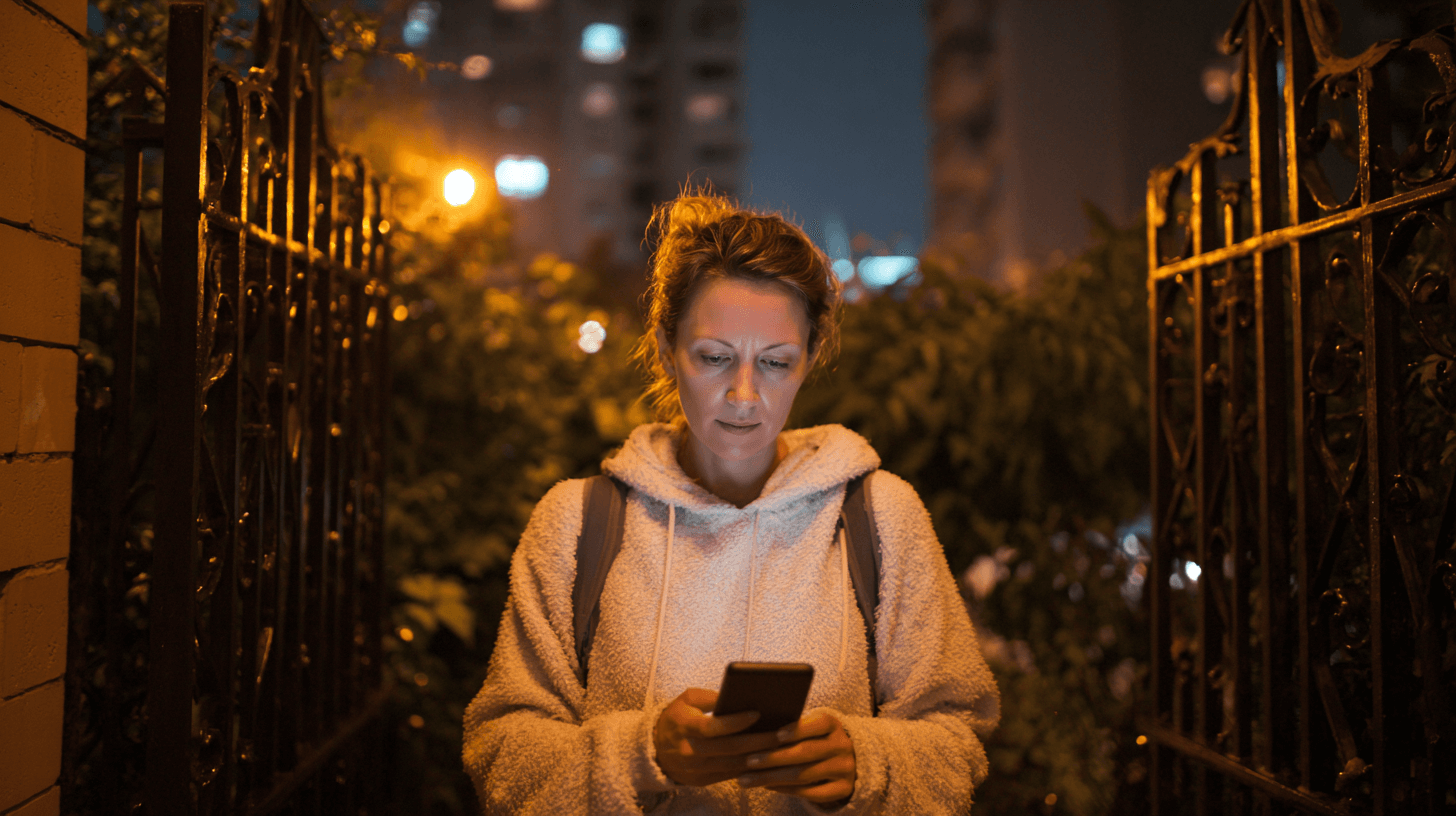
Here's what most property managers don't realize: that "dead" iPhone can still open doors. Apple Wallet’s power reserve feature keeps access control working even when the screen won't turn on. Your resident simply holds their powerless phone to the reader, and they're home. No charging needed. No panic. Just the same tap they use everywhere else—except now it works at their own front door.
The numbers tell a compelling story: 67% of renters specifically want keyless smart locks, yet only 11% currently have access to this technology. For properties still clinging to key fobs, this disconnect represents both a massive operational burden and a missed opportunity to attract the tech-savvy residents driving today's rental market.

Apple Wallet and Google Wallet have fundamentally changed how people interact with the world. Your residents already trust these platforms with their credit cards, driver's licenses, and travel documents. They've replaced physical wallets entirely. The average iPhone user opens Apple Wallet multiple times daily for payments, transit, and identification.
The same NFC technology that powers Apple Pay at millions of retailers worldwide now enables apartment access control. But unlike payment transactions that require power for security confirmation, property access cards in Apple Wallet utilize a special power reserve mode. Even with a completely dead battery, the phone maintains enough residual power in the NFC chip to transmit the encrypted access credentials.
This isn't a future possibility—it's available now. Properties implementing digital wallet access control report that the dead battery feature alone eliminates countless emergency lockout calls.
The National Apartment Association's research reveals staggering costs that most properties simply accept as normal:
The $40,000 Annual Reality Check: A typical 200-unit property faces over $40,000 in annual access control costs. This includes 2 fob replacements per unit yearly at $50-100 each (including $25-50 programming fees), plus system maintenance and administrative overhead.
Hidden Time Drains: The NAA found 22% of properties cite significant time spent on programming tasks. Each fob replacement consumes 15-30 minutes of staff time. That's not counting the after-hours locksmith calls at $150-250 each when residents lose access.
Security Nightmares: Every lost fob represents ongoing liability. Unlike Apple Wallet's instant remote deactivation, that missing fob could be anywhere—in the wrong hands, posted on Craigslist, or copied at a hardware store. You won't know until there's an incident.
Meanwhile, 76% of properties still rely on traditional keys, actually up from 61% in 2022. This backwards trend occurs despite overwhelming resident demand for digital solutions.
The data is undeniable: 75% of renters want property-wide access control systems. Among key demographics:
The setup simplicity surprises most property managers. When a new resident moves in:
For daily use, residents experience the same simplicity they know from Apple Pay:
The backend integration with Yardi, RealPage, or Entrata means lease-end deactivation happens automatically. No chasing down fobs. No wondering about copies. When someone moves out, their access ends instantly.
This feature deserves emphasis because it addresses the primary concern residents have about digital access: "What if my phone dies?"
Apple Wallet's Express Mode with Power Reserve means that even hours after an iPhone shuts down from low battery, it retains enough power for access control and transit passes. The resident doesn't need to wake the phone, enter a passcode, or open an app. They simply tap their "dead" phone to the reader exactly as they would normally.
Property managers report this single feature eliminates the majority of after-hours emergency calls. Residents returning from a night out, a long workday, or travel no longer face lockout anxiety as their battery percentage drops.
Apple Wallet and digital access control provide security levels that traditional systems can't match:
Biometric Fortress: Every access attempt requires Face ID, Touch ID, or device passcode. A stolen phone becomes useless without the owner's biometric data. Compare that to a stolen key fob that works for anyone.
Tokenization: Apple Wallet doesn't store actual access credentials. Instead, it uses encrypted tokens unique to each device. Even if intercepted, these tokens can't be cloned or transferred.
Instant Revocation: Terminate access immediately from your management dashboard. Former residents can't "forget" to return digital keys. Former employees lose access in a few clicks.
Complete Audit Trails: Every entry logs with timestamp, location, and verified user identity. Insurance companies increasingly offer premium reductions for properties with comprehensive access control—the NAA reports 26% year-over-year insurance increases, making any premium reduction valuable.
UDR Inc., managing over 50,000 apartment homes, documented 30% ROI from smart access deployment. They now collect $25 monthly rent premiums per unit while eliminating rekeying costs entirely.
Industry-wide data from the National Apartment Association shows:
Wood Partners, with 73,000+ developed units, reports their properties with digital access consistently outperform on resident satisfaction surveys while reducing installation costs versus traditional intercom systems.
The Residences at Central Park saved $45,000 annually after implementing smart access control, including 40% less time on key management and 65% fewer access-related service requests.

Younger renters don't see Apple Wallet integration as an amenity—they see its absence as a deficiency. Consider their daily routine:
The friction is jarring. Millennials comprise 60% of rental market choice, and they're making decisions based on tech integration. Properties without digital access control increasingly appear outdated, regardless of other amenities.
MIT and Maastricht University research found that just a one-point satisfaction increase makes tenants 18% less likely to move. Given turnover costs of $3,976-4,000 per unit, keeping tech-savvy residents happy directly impacts NOI.
Property managers often assume Apple Wallet integration requires massive infrastructure overhaul. It doesn't. Modern readers install alongside existing systems, creating a hybrid environment during transition:
Phase 1: Install readers at main entrances and amenity spaces Phase 2: Offer Apple Wallet to new residents at move-in Phase 3: Promote opt-in conversion for existing residents Phase 4: Natural fob phase-out through attrition
Most properties achieve majority adoption within six months, with younger demographics often exceeding 90% voluntary conversion rates.
The mobile access control market's 23.9% annual growth indicates this isn't a trend—it's the new standard. Properties delaying implementation risk falling behind competitor communities already advertising "Apple Wallet compatible" as a premium feature.
"My older residents won't understand this" The same residents already use tap-to-pay at grocery stores. Apple Wallet's interface is actually simpler than managing physical key fobs. During rollout, position it as "the same technology you use at the store" and offer setup assistance. Most skeptics become advocates after their first successful use.
"Is it really secure?" Apple Wallet's security exceeds banking standards. The same encryption protecting billion-dollar transactions protects your property access. Insurance companies recognize this with premium reductions for properties using advanced access control.
"What if the system goes down?" Digital wallet credentials store locally on the device. Unlike cloud-dependent systems, Apple Wallet works offline. The readers need power, but the credentials remain accessible even during internet outages.
The market has reached an inflection point. Despite 67% of renters wanting keyless access, only 11% have it. This gap won't last.
Early adopters are already advertising Apple Wallet compatibility in listings, conducting tours highlighting the feature, and collecting premium rents. Properties with smart access control command 5% higher rents while achieving 97% resident satisfaction rates.
For properties still distributing plastic fobs at move-in, the question isn't whether to implement digital wallet access control—it's whether you'll lead the market or scramble to catch up.

Digital wallet integration for apartment access represents the convergence of resident demand, operational efficiency, and competitive necessity. The technology works today, even with dead batteries. The ROI is proven. Your residents are asking for it.
The annual $40,000+ cost of traditional access control makes the decision mathematical: every month of delay costs money while disappointing residents who expect Apple Wallet to work everywhere—especially at home.
Start with a pilot program. Choose one building or amenity space. Watch resident reactions when you explain their iPhone works even when dead. Track the reduction in lockout calls. Calculate the staff time saved. Then scale across your portfolio before competitors force your hand.
The future isn't coming—it's already in your residents' pockets, waiting to transform how they access their homes.
Ready to give residents the Apple Wallet integration they expect? Gatewise's digital wallet access control works with your existing property management system, Apple Wallet installs in under a day, and yes—it works when phones are dead.